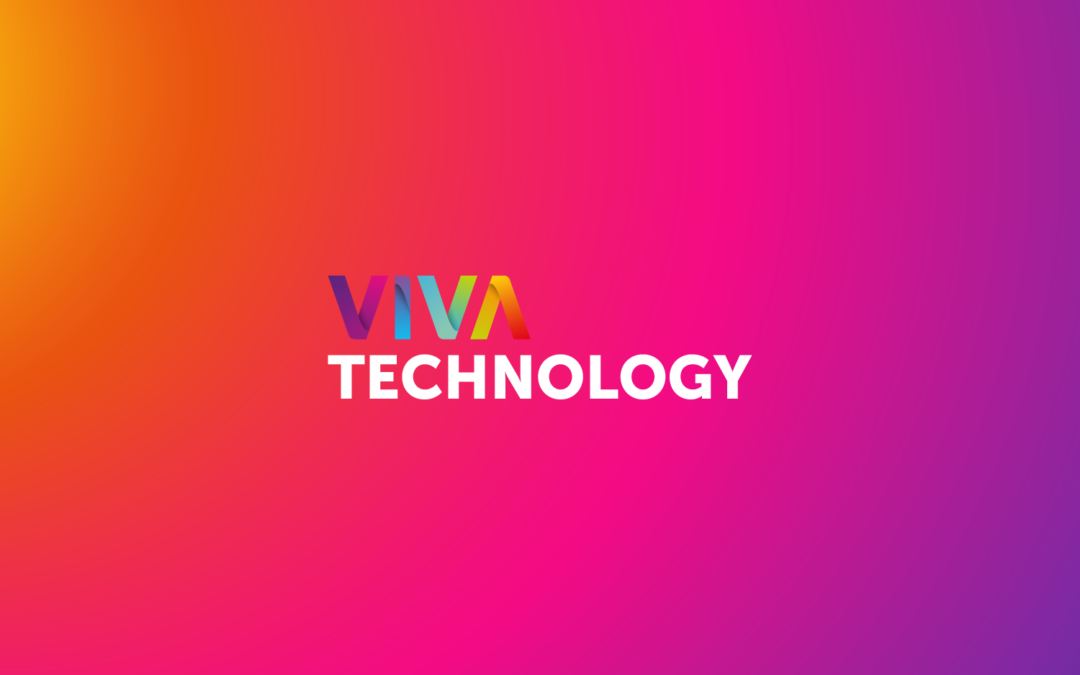Recruitment has become a real headache for companies in 2023. The challenges are numerous: attracting candidates, converting them and retaining them in a constantly changing environment. If digital has brought solutions, it cannot be the only answer…
HR Strategy
Expert HR consultant SQORUS
The APEC report for the year 2022 describes, with figures to back it up, the recruitment difficulties affecting companies. Indeed, in the current context, the labor market is characterized by some major challenges:
- Attracting and converting candidates;
- Retain talent in a hybrid or remote environment, or with plenty of opportunity in the market, due to the economic rebound after the health crisis;
- Sourcing candidates as the world around us and the candidates change.
No one can deny that digital technology has brought many positive changes to traditional recruitment practices: automation of processes, publication of ads on job boards, digitalization of the candidate experience… but the HR solutions or HCM (Human Capital Management) proposed today cannot be the only solution to these “new” challenges!
Winning the war for talent is no longer just about having the largest HR or IT budget. But it is necessary to look at other criteria that combine “common sense” and “human approach”, in order to rethink recruitment processes and practices… It is on this basis that we present you the trends identified for recruitment in 2023.
Recruitment trend #1: The “Human Relationship” between the Recruiter and the Candidate will be more important
Following the upheavals in the job market during the covid period, it is clear that the balance of power has been rebalanced between the candidate and the recruiter. Human resources management has evolved. We will therefore expect a change in the recruiter’s perception of an average candidate. It should be noted that this will be facilitated by a technological context of Web 2.0 where the entire ecosystem is digitalized: job offer, application, hiring process, onboarding… There were other crises before the 2020 crisis, but they didn’t have the same impact on this recruiter-candidate relationship as what we’re seeing now.
In a ”
Human Centric
“approach, we must go beyond the recruitment process. The recruiter must establish a relationship of trust from the start, to avoid “ghosting”. He/she must keep the candidate informed throughout the process and be transparent/precise about the project he/she is proposing. Generation Z entering the job market expects to live an “adventure” in the company that welcomes them… It is therefore necessary to change the mindset to think of proposing a company “project” in which the candidate will be able to project himself.
The candidate has already researched your company, your customers/partners and your values… It is now a matter of considering thecandidate experience as a “customer” experience looking for a product in a digital platform. It is a real lever to attract so-called penurious profiles.
There are plenty of proven marketing techniques that can be transposed into
HR recruitment practices
As a result, there is more and more talk about HR Marketing, a topic we will go into in more detail later in this article.
Finally, using the most powerful HRIS on the market for CV screening should not be seen as a definitive solution. Indeed, the “desire” of what the candidate wants to do, his personality and the meaning of the work are not included in his CV. It’s by digging into these points that recruiters will be able to change the game.
Also, as the CEO of JobTeaser recently said: it is not (only) with increasing salaries that we will attract the best profiles and retain talent!
Recruitment Trend #2: The Recruiter’s “Central Role” in the Influence of the Employer Brand
Employer branding is not a new topic in the HR world, however it has been put back on the agenda in a natural way for the last 2 years, in a context of telecommuting that places the entire recruitment process in the digital sphere. Many companies have integrated employer branding into the recruitment function, and we are seeing more and more ” Recruitment and Employer Brand Director ” roles in HR teams.
Before the health crisis, the subject was seen as “secondary” or managed across the HR/Comm/Marketing teams. From now on, it has become and will be one of the daily working tools of recruiters. The latter must learn to handle the art of selling and defining themselves in front of the candidate, thanks to the Marketing and Communication functions, in addition to recruiting talent.
Managers also play a complementary role in strengthening the employer brand. Managers are the entry point of the recruitment process, they are the ones who submit the need. They then actively participate in interviews, feedback and recruitment decisions. Together with the employees, they are the first ambassadors of the company’semployer image, both internally and externally.
Recruitment trend #3: “Portage Salarial”, a response to the talent shortage
Faced with the tension on the job market and the shortage of candidates, recruiters are currently confronted with recruitment difficulties, a situation that cannot be resolved in a snap of the fingers. As a result, companies are starting to outsource their missions to independent consultants (or freelancers) via the system of “portage salarial”. This has a dual purpose:
- Respond quickly to a recruitment need and therefore business
- Guarantee the adequacy of the profile carried with the position and thus the control of the recruitment costs.
Thus, in a world that is constantly changing and economically uncertain, this is one of the alternative solutions to the talent shortage in the coming years.
In 2022, according to the Fédération des Entreprises de Portage Salarial (FEPS), the market will have 100,000 employees in France. In an evolutionary scenario, it could be multiplied by 5 according to FEPS.
Recruitment trend #4: CV-free recruitment
In 2022, I dedicated an
article on CV-free recruitment
recruitment, with analyses and recommendations to better approach this new practice. Also, LinkedIn, in its end of year 2022 ranking dedicated to trends in the world of work, places ” CV-free recruitment ” in 15th position. This approach can be an answer to the shortage of talent in certain professions. However, the dilemma that will arise for HR teams is:
- Use technology to analyze, sort and pre-screen resumes.
- Doing away with the CV to recruit the Human being above all, by focusing on the personality, soft skills and desires of each candidate.
One does not preclude the other, insofar as “common sense” and openness to change can be a real asset for recruiters in a constantly changing world.
To go further, you can check out the content on LinkedIn on the hashtag #jenesuispuncv.
Recruiting Trend #5: Deploying HR Marketing for Recruiters
As the name suggests, HR marketing is the application of marketing principles to recruitment. Its objective is to strengthen the company’s position in the job market, in other words to make its “ Employer Brand ” shine.
Over the past two years, during my missions to accompany recruiters on HRIS projects, I have noticed that they are increasingly calling on recruitment experts and specialists to train them in HR marketing techniques.
Recruiters will undoubtedly become experts in this field in the next few years, but it is still necessary to build a full-fledged, long-term project… In fact, HR and Marketing/Com’ Management, which often and sometimes each worked in their own corner, will finally have a common company project. The latter should be driven by the top management, which will guarantee its execution in a long-term strategy.
The brand crystallizes the identity and image of the employer, both internally and externally, and is therefore not something that is “acquired and eternal”! It is important to preserve it so that it does not deteriorate over time!
Recruitment trend #6: Artificial Intelligence and ChatGPT, what about it?
Following the launch of ChatGPT in November 2022, the conversational robot developed by
OpenAI
a number of businesses have begun to play the game to test its capabilities and imagine all the possible applications. In the HR function, recruitment is the area where we have had the most applications of AI in recent years: matching or recommending profiles, pre-selecting candidates, etc.
In the next 2 years, we will note two families of recruiters to grasp this technological revolution:
- A “Test & Learn” approach, to enter an exploratory phase
- A “Wait & See” approach, to wait for the market to evolve and for the first conclusive feedbacks According to a survey revealed on LinkedIn and having obtained more than 400 responses, the first family constitutes about 35% of the recruiters who have tried ChatGPT so far.
Here are a few non-exhaustive examples of use:
- Drafting of job offers
- Drafting of messages for the purpose of contacting candidates
- Writing more personalized responses
- Identification of questions to ask in a job interview.
The use of ChatGPT also works in the other direction. Indeed, it can be useful for the candidate to create a CV & cover letter that perfectly match a job offer.
Recruitment trend #7: The integration of the Data dimension in future HRIS projects in recruitment
In connection, with the previous point, once we start digging into the topic of applying AI in the HR function, the first question the topic will raise is, “What data and in what volume will I need to create effective artificial intelligence?”
HR teams will therefore systematically integrate the data and data analysis dimensions in HR and HRIS projects around AI. The creation of specialized units in this area will be more and more frequent in both HR and IS departments, which will have to work hand in hand for a common goal.
The importance of the data can be an asset or a hindrance: incomplete, irrelevant, erroneous or poor quality data can lead to inappropriate decisions and generate additional costs in the recruitment process.
Therefore, we should not wait for the deployment of AI-based HR solutions to address the topic of Data, especially when we know that AI uses learning models that require a lot of data and training to come up with relevant results. Moreover, the algorithms of these solutions rely heavily on public data, and therefore, are not specific enough to be exploitable on issues related to the context of the company in particular.
In an AI market evolution scenario, the importance of the Data dimension will be even more decisive in the coming years for the HR function.
Conclusion on recruitment trends for 2023-2025
It’s clear that the challenges of recruitment continue to evolve, but it’s also clear that innovative solutions are emerging to address these challenges. By combining these recruitment trends with traditional practices, companies can effectively adapt to current market changes and attract the best talent to meet their needs.
On this subject, SQORUS, a consulting firm specialized in digital transformation of HR, Finance and IT functions, can help you with your recruitment, HR innovation, data or AI issues.
Do not hesitate to contact us to discuss with our experts.
See also our feature on "HR strategy management tools".
- What are the key issues facing HR departments today?
- Organization, talent management, recruitment: priority HR projects?
- Human resources management: what HR strategies for the future?
- Best practices to manage your HR strategy in an optimal way
- The different HR management tools to carry out your HR strategy
- HRIS software: the different areas of intervention for the HR function
- How to convince your management to invest in an HRIS tool?
- Is it necessary to be accompanied in the management of an HR strategy?
- What indicators should be defined to measure the performance of an HR strategy?
- HR strategy: how to achieve effective HR reporting?
- Who should drive HR projects in the company?
- Setting up a working group for an HR project: who should be involved?













